Opinion
The Benuenisation of Niger State and the Bandits war.
Published
3 years agoon
By
News Editor
By Owei Lakemfa.
THOSE who think the war against banditry is a joke, need to take a look at the statistics coming out of Kaduna State. The long suffering state continues to bleed. In the first 90 days of 2021, an average of four lives were lost daily to banditry while in every 24 hours, 11 persons were kidnapped.
Yet, excluding the states devastated by Boko Haram terrorists, Kaduna is not the most traumatised. At least the people still retain their villages and towns. Not so in Plateau State where bandits maim, kill, displace the people, take over their villages and towns, rename and settle in them. The June 30, 2018 edition of the Vanguard Newspapers reported that the bandits had seized over 54 villages, renamed and occupied them. These include “Rotchun (Rafin Acha) Dankum, renamed Mahanga, Hywa, renamed Lugere, Fass rechristened Tafawa, and Maseh, renamed Lugel. Three years ago, Plateau State governor, Simon Lalong who is now the Chairman of the Northern Governors Forum vowed that his administration will not allow this land grab to stay. He declared: “those fighting, killing people and destroying their settlements with the intention of taking ownership of such places would not be allowed to do so. If you think you can chase people out and grab their land, we as a government would not allow you to own the land. My administration is working out modalities for prosecuting land grabbers to discourage the act.” But three years down the line, this has not come to pass.
It appears Lalong and the Plateau elite are contented with the new status quo. Perhaps they take the advise of the Presidency to accept the situation, because as the Special Adviser to the President on Media and Publicity, Mr. Femi Adesina said on the African Independent Television: “If you are talking about ancestral attachment, if you are dead, how does the attachment matter? …What will the land be used for if those who own it are dead at the end of the day?”
Also, President Muhammadu Buhari as Commander-in Chief of the Armed Forces, has not sent the gallant Nigeria Army to retake those villages and communities and restore the people to their homes. Without Internally Displaced Peoples’ IDPs camps provided, the victims are simply melting away. To be fair to President Buhari, he had alerted the country in his January, 2019 interview with Arise Television that these bandits are actually the remnants of the multinational forces recruited by former President Muammar Ghaddafi to fight in Libya. He identified them as Malians, Burkinabe, Nigeriens, Chadians and people from the Central African Republic.
However, Benue State would not agree to this forced changing face of demographics and continues to fight. The result is that the state became the killing field of Nigeria resulting in it experiencing what I call the Four Phases of Annihilation. First, there were conflicts euphemistically called ‘herder-farmers clashes.’ Then the victims were forced off their lands which were then occupied by the invading forces. The third stage was their becoming internally displaced persons with camps set up for them. But having so many people in the camps means that in future, they can decide to retake their ancestral homes, so they are being attacked and killed. This is the fourth phase which may see them melting away, as was the case of the Plateau State victims.
Last Tuesday, April 27, 2021 after the IDP camp in Abagena was attacked, a furious Governor Samuel Ortom went there to express his anger that over 70 persons had been murdered within two weeks in the Makurdi Local Government area alone. Ortom fumed: “Go to Guma, the same killings are taking place, go to Gwer-West, the same killings are taking place. This is not fair. The Federal Government has refused to take a proactive step to arrest this ugly situation we are witnessing here today. You recall that I alerted the entire nation when Fulanis from 14 countries met in Yola and declared that except we review the prohibition of open grazing law, Benue will not know peace.” He said of the new attacks: “It means we don’t have a government. You can imagine, this is Abagena IDP camp. The adjoining villages are occupied by IDPs. What else do you want them to do? You send these people away from their villages, they came here to take refuge and today they are being killed in this manner… How do you wake up every day and see your people being killed?”
As usual, Ortom’s comments have led to a spat with the Presidency. The administration while as usual commiserating with the victims of banditry and terrorism said President Buhari takes exception to Ortom’s comments. He accused Ortom of: “making a litany of accusations against his person and his government …”
However, in the last six months, the Nigerian killing field has shifted from bloodied Benue State to Niger State, which by landmass, is the largest state in the country and is host to three hydro-power stations: Shiroro, Kainji and Jebba. As it is in Plateau and Benue states, bandits are invading towns and villages and forcing the populace to flee. However, unlike those two states, the banditry and invasion has been worsened by the mix of Boko Haram terrorism. As the land invasions, mass kidnapping including of school children, and killings escalate, Niger State governor, Sani Bello, warned that the bandits are primarily foreigners who enter the country from the Benin Republic border and come into Niger through Kaduna and Katsina states. He added that: “the bandits are Fulanis that have no one to control them even their parents.”
Governor Bello who also revealed that the invaders were invited into the country said: “We arrested bandits from Sudan and Mali and they were recruited through social media.” After the bandits recent attack of 14 communities in Rafi and Shiroro local government areas, Bello visited some of them in the IDPs camps in Kagara and Pandogari, assuring the victims of a quick return to their communities. The governor also told the country that Boko Haram terrorists have taken over Kaure town, hoisted their flag and forcefully taken the wives of residents. He warned that this invasion threatens the country’s capital, Abuja which is some 140 kilometres away.
The Buhari government has always reacted to the worsening insecurity in the country by claiming that it is “on top” of the situation. However, former Vice President Atiku Abubakar last Tuesday declared: “It is time for us as a nation to face the reality that we have an emergency on our hands. A catastrophe that must be decisively dealt with before it snowballs into an existential crisis.” But who is listening in the Buhari government?
You may like
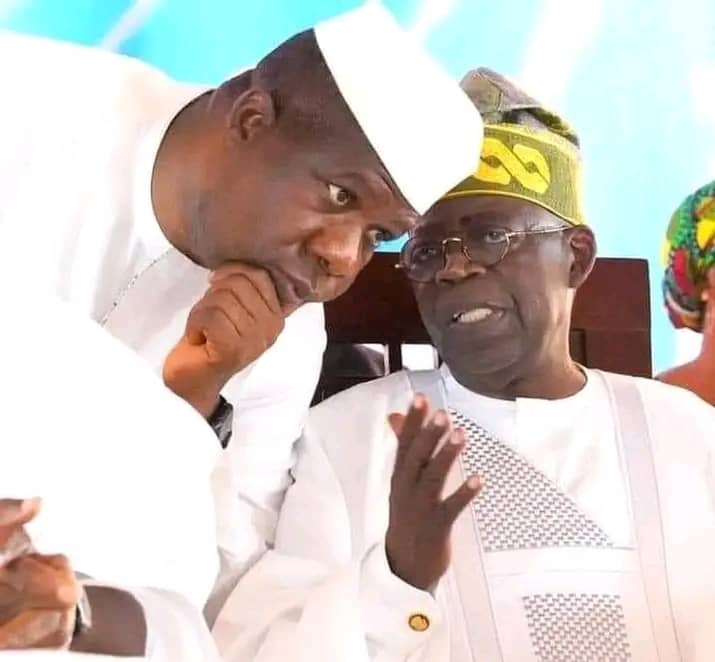
By Senator Opeyemi Bamidele, CON
Today, I celebrate a timeless doyen of democracy and an astute mentor of many leaders, President Bola Ahmed Tinubu, GCFR. By global standards, Asiwaju is truly a man of the people and the visionary of our times, who devoted his life to pursuing the greatest goods to the greatest number of people. This has been the core of his heart and life from when he was a boardroom guru in the 1980s to when he joined partisan politics in the 1990s.
Born on March 29, 1952, Asiwaju’s foray into politics in 1991 was never a mistake, though it came with a huge sacrifice that cost dearly. As a Senator of the Federal Republic of Nigeria, I celebrate how Asiwaju firmly stood with the people rather than dining with the military oligarchy that annulled the outcome of the June 12, 1993 presidential election ostensibly won by Chief M.K.O Abiola (now of blessed memory), an annulment that set our fatherland back to the pre-colonial era.
I also celebrate how Asiwaju teamed up with the progressives to establish the National Democratic Coalition, a movement of likeminds and progressives that fiercely challenged the regime of the late tyrant, General Sani Abacha; mobilised support for the restoration of democracy to our fatherland and campaigned for the recognition of Chief M.K.O Abiola as the winner of the June 12 presidential election. And this conviction and pursuit eventually earned him exile from the land of his birth. Yet, he was undaunted in his quest to see his fatherland liberated from the era of locusts that pitched us against the comity of nations.
I celebrate how Asiwaju returned to Nigeria in 1998 when the darkest era of the late tyrant finally folded into the abyss of extinction after fighting doggedly on the side of the people. The end of the dark era culminated in his election as the third civilian governor of Lagos State in January 1999. Though faced with diverse heinous challenges at the inception, Asiwaju came out strong and victorious, setting Lagos on the path of irreversible progress, reforming the coastal state to a globally competitive smart city and turning it to a constant destination of strategic investment. And the world can no more look away from Nigeria just because of the pro-people reforms he carried out in Lagos.
Asiwaju’s quest for the greatest goods for the greatest number of people pushed him to national politics, the kind of venture that consumed the nationalists and patriots who lived before him. At different times, he challenged the traditional forces that held our fatherland down. He first fought for the soul of our fatherland on the platform of the defunct Action Congress, and it did not entirely produce an enviable outcome. He later switched to the Action Congress of Nigeria, and banished the regressive elements from the six states of the South-west. Full of hope, Asiwaju stressed forth his hands across Benue and Niger, and together, they rescued Nigeria from the hands of the regressives.
At 72, as the President of Nigeria, Asiwaju has brought rare conviction and passion to the business of public governance, courageously daring the forces of regression and tirelessly pursuing the interests of over 227 million regardless of their faith, ideology and race. The task is truly daunting, but the victory is undoubted. Only within 10 months of Asiwaju’s ascendancy to the presidency, we have started witnessing the dawning of economic restoration and the ray of political renaissance under his watch.
As I nostalgically reflect on the journey so far, I remember his labour and toiling for our fatherland, even when most misunderstood. I remember his undying passion to lead the path to a greater nation, even when the future looks so bleak and always unsure. I remember his utter commitment to a movement of patriots and progressives eternally sworn to rescue our fatherland from the claws of the ageless vultures and the blood-thirst beaks of mindless hawks that always seek to feast on the flesh of Nigeria. Despite their ferocity, he eventually subdued the enemies of our souls, even right in the midst of inferno they set ablaze for us all.
That is the reality in our fatherland today. Asiwaju is at the forefront of that reality. And we are all witnesses to this history, even from its making to its maturation. Now, as he graciously turns 72 on this auspicious day, I cannot, but earnestly pray God grants him longer life and inner strength to steadily paddle the ship of our nation to the coast of endless ecstasy.
Heartiest 72nd Birthday, my leader and mentor.
- Bamidele, Leader of the 10th Senate, writes from Abuja
Opinion
Chronicling Deputy Senate President Barau’s 100 days of parliamentary excellence
Published
7 months agoon
September 18, 2023By
News Editor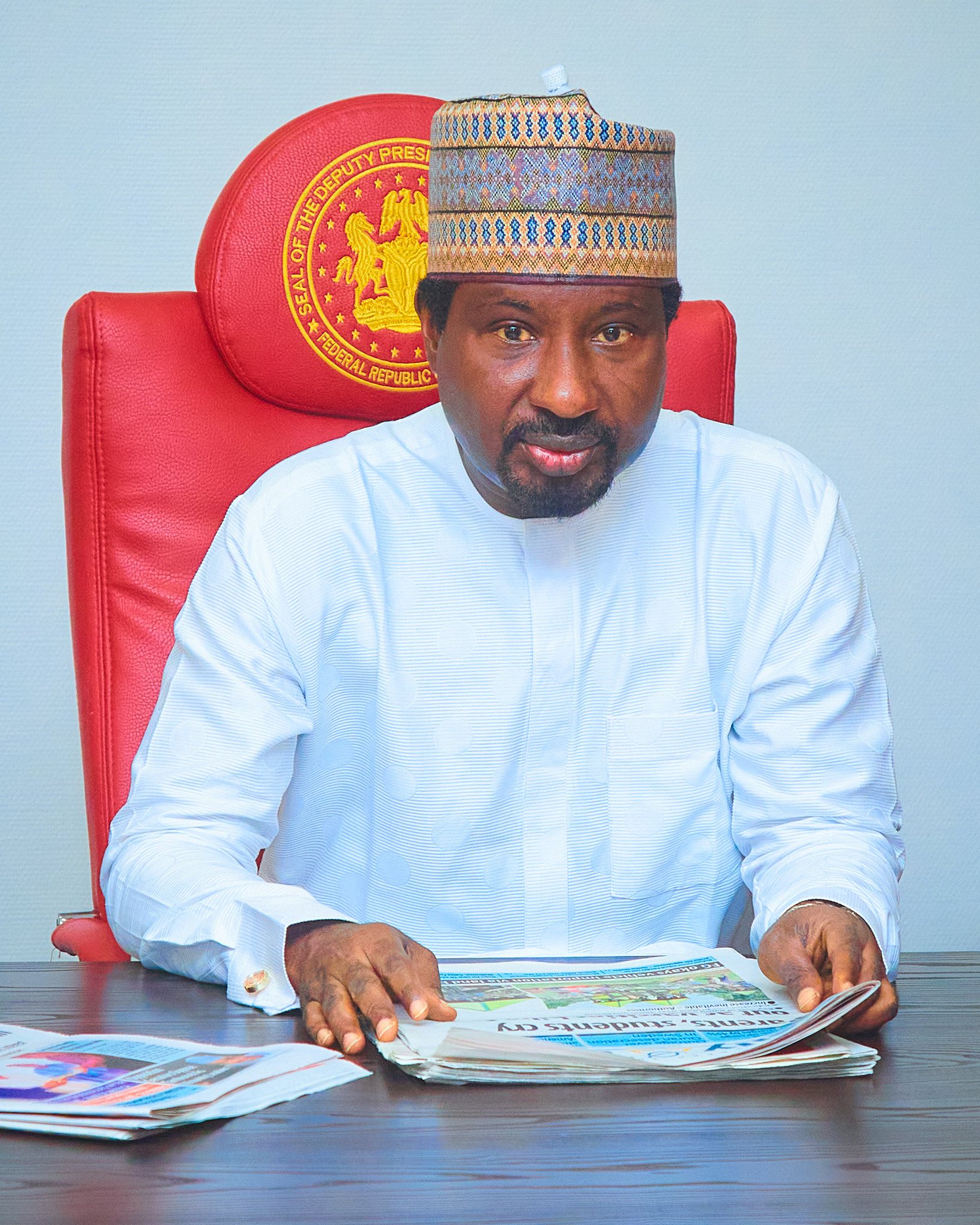
By Ismail Mudashir
Tomorrow, Wednesday, September 20, 2023, the 10th Senate will mark its first 100 days following its inauguration on June 13, this year.
The inauguration of the parliament followed President Bola Ahmed Tinubu’s proclamation, via a letter to the Clerk to the National Assembly, Sani Magaji Tambawal, in line with Section 64(3) of the 1999 Constitution.
The first duty of the senators was the election of the presiding officers – the President of the Senate and the Deputy Senate President. After a keen contest, Senator Godswill Akpabio, from Akwa Ibom State, emerged as the President of the Senate, defeating Senator Abdulaziz Yari, a former governor of Zamfara State.
Apparently, because of his rare personality traits, Senator Barau I. Jibrin, a fourth timer at the National Assembly (three times in the Senate – 2015 to date and once in the House of Representatives – 1999 -2003) emerged as the Deputy President of the Senate unopposed as all his colleagues threw their weight behind him.
Three weeks after the emergence of the two presiding officers, eight principal officers were named, thus the leadership of the 10th Senate was duly constituted. With the constitution of the leadership, the lawmakers got the parliamentary work started as urged by the President of the Senate, Senator Akpabio, in his speech on July 4, 2023, titled, “Let’s get the work started.”
On July 6, Senator Barau, for the first time, presided over the plenary session. During the session, five motions were moved including the one on Mallam Aminu Kano International Airport, Kano.
After the July 6 session which attracted applause from across the Red Chamber and beyond, Senator Barau had presided over the plenary on other occasions in the absence of the President of the Senate in the last 100 days.
Among the critical motions sponsored by the Deputy President of the Senate during the period under review was the one on the poor state of road infrastructure and the menace of gully erosion in the country. Also to his credit was a motion on the emergence of President Tinubu as the Chairman of the Economic Community of West African States (ECOWAS).
Four bills of the Deputy President of the Senate, including the one on the creation of a development commission to fast-track the development of the country, have been introduced at the Red Chamber.
* Balanced appointments
Recognizing the heterogeneous nature of the country, the Deputy Senate President selected his seven key appointees from across the country – four were drawn from Kano State – two from the southern part of the country – Oyo and Imo states, and one from Kwara State – North Central geopolitical zone.
The appointees who hail from Kano State include the Chief of Staff, Professor Muhammad Ibn Abdullahi; the Special Adviser (Policy & Monitoring), Professor Bashir Muhammad Fagge; the Special Adviser (Political), Yusuf Aliyu Tumfafi and the Special Assistant (Media & Publicity), Shitu Madaki Kunchi.
The Special Adviser (Media & Publicity), Ismail Mudashir, hails from Kwara State; the Special Adviser (Special Duties), Idris Abiola Ajimobi, Oyo State; and the Special Adviser (Administration), Mrs. Ngozi Ndawi Nkemdirim, from Imo State.
Commendations have followed what has been described by lawmakers, media practitioners, civil society organisations, and other stakeholders in the country as balanced appointments.
* Constituents driven representation
For Senator Barau, his representation has been constituents and pro-masses driven. Hence the unfettered access he grants to people from Kano North, Kano State, and beyond; the old, young, rich, and poor; APC members and members of other parties.
For instance, in August, he instituted a scholarship programme through which hundreds of tertiary institution students from Kano North Senatorial District were given N50,000 each. The programme was flagged off at Bayero University Kano (BUK).
Before the scholarship scheme, the Deputy President of the Senate had paid WAEC and NECO fees for hundreds of secondary school students.
To boost agriculture in the state, Senator Barau also distributed fertiliser to farmers across the 44 local government areas of the state.
According to beneficiaries, this initiative would enhance their output and contribute towards attaining food security in the state and country.
On September 6, the people of Rimindako community in Bagwai LGA of Kano State, through a human rights activist, Barrister Muhammad Zubair, lauded the Deputy President of the Senate over the construction of Yasanya bridge and access road in their community.
· Visits Abuja Industrial Park
On the invitation of the Zeberced Group, the Deputy President of the Senate was at the Abuja Industrial Park located in the Idu Industrial District on September 4. Sitting on 245 hectares of land, the park will house 200 factories, a helipad, a train station, a lorry park, a bank, a recycling station and a power plant, among others when completed.
The park is an initiative of the Zeberced Group, jointly founded by Adil Aydin Kurt and Cemal Kurt from Turkey. The company’s Managing Director, Aidl Aydin Kurt, conducted Senator Barau around the project. Kurt told his visitor that the project when completed will provide 40,000 direct jobs to Nigerians.
Moved by the 40,000 jobs to be created , Senator Barau said the parliament would provide the necessary legislative support to the company, saying the project was in line with the commitment of the federal government to address unemployment, boost and diversify the country’s economy.
* Keeping parliament alive during recess
Even with the annual recess embarked upon by the parliament on August 7, the office of the Deputy President of the Senate has been active, five days a week (Mondays – Fridays), with Senator Barau performing official engagements. During the period, he met with ministers, heads of agencies, civil society/pressure groups including the promoters of Tiga and Gari states, clerics, and party leaders, among others.
During their visit, stakeholders of the All Progressives Congress (APC) in Kano North Senatorial District, led by Hon. Sani Mukaddas, hailed Senator Barau, describing him as an exceptional lawmaker and leader.
In the same vein, a forum of former zonal women leaders of the APC has thumped up Senator Barau, saying he is not discriminatory in his dealings with all.
“Continue to support us, we won’t disappoint you, Insha Allah,’’ were the words of the Deputy President of the Senate to those who visited him. He also assured them of the commitment of the parliament to support the executive with the necessary legislation to address the challenges facing the nation.
Mudashir is the Special Adviser on Media and Publicity to the Deputy President of the Senate
Opinion
Ahmad Lawan: The Doyen of Nigerian Parliament @64
Published
1 year agoon
January 12, 2023By
News Editor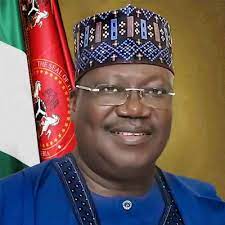
By Ola Awoniyi
Ahmad Ibrahim Lawan, the Distinguished Senator representing Yobe North Senatorial District of Yobe State, turns 64 on 12th January, 2023. Within those almost six and a half decades, he has seen it all, especially in public service. In just about five months from now, he will conclude his tenure as the 14th President of the Nigerian Senate and sixth consecutive session in the National Assembly.
Lawan has been around for so long in Abuja that it is easy to assume he was never elsewhere. Yet, his earliest work experience was in the academia, and it lasted long enough for him to bag a Doctorate degree in Remote Sensing and Geographic Information System (GIS) before yielding to the pull of partisan politics in 1998.
In that calling, Lawan has clearly made his mark. And not just because he attained the dizzying height of third in the order of succession. People see politics as a dirty game. But Ahmad Lawan does not see it that way. For him, politics should not change the core beliefs and principles of an individual. Service to the people should be the driving objective of partisan political practice. And whether in politics or elsewhere, Lawan believes one’s yes must mean yes.
This has, in no small measure, paid off for Lawan in his almost 25 years in politics, 24 of which has been as a federal lawmaker. A member of the pioneer class of the National Assembly of the Fourth Republic, he was first elected in 1999 to the House of Representatives from the Bade/Jakusko Federal Constituency of Yobe State. He was re-elected to the House in 2003. But in 2007, Lawan crossed over from the Green Chamber to the Red Chamber as the Senator for the Yobe North District. He was re-elected to that Senate seat in 2011, 2015 and 2019.
If you know what it takes to win elections in Nigeria, you would appreciate that what multiple winners like Lawan have accomplished is no small feat. His numerous reelections underscore that his constituents appreciate the quality of representation that he has been providing to them in Yobe North District.
The life of a politician is not all gloss as it may sometimes seem. Election is not a tea party. A parliamentarian in particular needs very hard work to get a return ticket from the party. In Parliament, getting the support of colleagues for motions and bills requires deep knowledge and passion for the subject; focus and temperament. It is actually an extra burden if you are a Presiding Officer in parliament. Success or failure at every stage has its implications.
No wonder, Mallam Nasir El Rufai, the outspoken Governor of Kaduna State, at a recent public function in Abuja, said he has no intention of seeking a seat in the National Assembly like many former governors now do.
Speaking as chairman at the second edition of the “Distinguished Parliamentarian Lecture” organised by the National Institute for Legislative and Democratic Studies(NILDS): the governor said:
“The Legislature is one branch of government I know I can never function. The hardwork needed to convince people to support even your motion is something some of us have no patience for. You know management in the Executive is very straightforward. It is very hierarchical and once you are a governor, your word is almost law. But in the Legislature, everybody is equal and there is no management that is more difficult than managing your equals. I don’t envy Mr Speaker and the Senate President at all because their job perhaps is the hardest job in this country. Managing equals is difficult.”
Despite the difficulties, Ahmad Ibrahim Lawan has shone at the National Assembly since its inauguration in 1999. Lawan is today one of only two lawmakers remaining in the National Assembly from the 1999 set. He has also attained the most enviable of heights in his many years of service at Parliament, becoming “first among equals” in the Upper Chamber, which is the very pinnacle of the hierarchy in the parliament of any democratic society. That makes him the Doyen of the Nigerian Parliament.
In his three and a half years as the 14th President of the Senate and Chairman of the ninth National Assembly, he has set a high standard for whoever will be his successors. He has demonstrated the value of parliamentary experience as a prerequisite for election as a presiding officer for the Upper Chamber.
His experience of more than two decades in parliament has made him an encyclopedia on the inner workings of the National Assembly. Lawan has the standing rules at the tip of his fingers. When any of his colleagues raises a Point of Order, he would ask the colleague to specify which order. But before the text is read out, Lawan already knows the provision and its applicability.
As “first among equals,” Lawan knows the importance of fairness in the conduct of the affairs in plenary. Even though the majority will always have its way, the minority must have its say as well.
Lawan knows the value of a bipartisan Legislature. Perhaps the most difficult aspect of the job of a Presiding Officer is to know when to hit the gavel and when not to. As one of Lawan’s aides, I heard him say, many at times, that he had no choice but to hit the gavel or rule in favour of a majority voice vote even when he held a different view to the voice vote. That is democracy.
Lawan also knows the value of promoting harmony between the Legislature and other arms of government, particularly the Executive, without compromising the independence of the Legislature.
Lawan has seen it all in Parliament. From my vintage point of observation, I quickly realized that he did not become the 14th President of the Senate and Chairman of the Ninth National Assembly by happenstance. It was the result of long years of self-preparedness, self-discipline, consistency, perseverance and tenacity of purpose.
Those attributes are essential for success in any endeavour and Lawan obviously learned that very early. And wherever he goes next, they will accompany him and pave the way for more success.
As I wish the Sardaunan Bade a happy 64th birthday, I also wish him more success in his future endeavours.
***Awoniyi is Special Adviser on Media to Senate President
Latest News
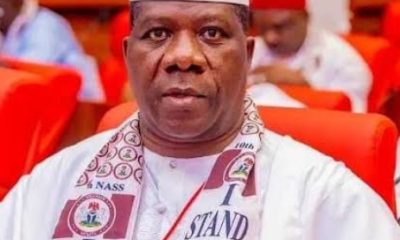

EID El Fitr: Let’s Embrace Ramadan Lessons – Senator Bamidele
ShareLeader of the Senate, Senator Michael Opeyemi Bamidele has rejoiced with the Muslim faithful as they celebrate Eid-el-Fitr nationwide. Senator...


Easter: Senate Leader Calls for Emulation of Sacrificial Spirit of Jesus Christ.
ShareAs Nigerians join the rest of the world to celebrate another Easter in remembrance of the death and resurrection of...
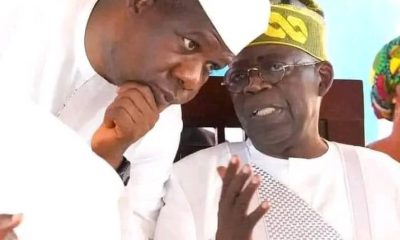

Ode To People’s President
ShareBy Senator Opeyemi Bamidele, CON Today, I celebrate a timeless doyen of democracy and an astute mentor of many leaders,...


Constituency Projects: Oyebanji Joins Senate Leader On Tour Of Project Sites in Ekiti
Share Ekiti State Governor, Biodun Oyebanji has commended the members of the State Caucus in the National Assembly for their...


Infrastructure: FG Approves Dualisation of Ado-Ikare Road – Bamidele
ShareAfter three decades of outright neglect, the Leader of the Senate, Senator Opeyemi Bamidele has revealed that the federal government...
